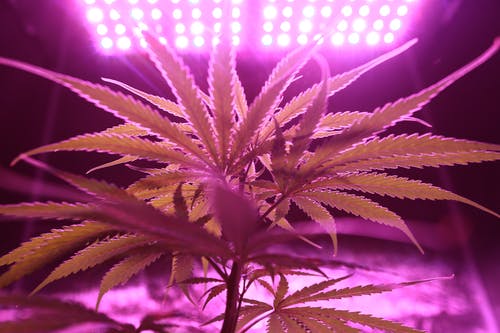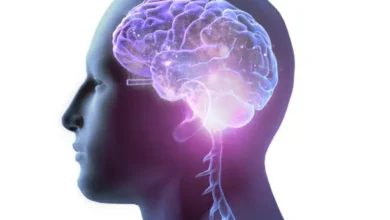Resolving The 6 General Misconceptions About THC

THC gummies are a cannabis-infused edible that many people enjoy for their delicious flavor and easy dosage. THC gummies are made by infusing Gummy Bear candies with THC oil or tincture. The gummies are typically dosed with 10mg of THC per gummy, though this can vary depending on the potency of the THC oil used. THC gummies provide CBD edibles a discrete and convenient way to consume cannabis, and they can be an excellent option for those looking to experiment with edibles for the first time. For experienced cannabis consumers, THC gummies can be a fun and delicious way to enjoy a high.

Learn About The Misconceptions Of THC
- THC is not just for getting high – it has a variety of medical benefits as well
THC, or delta-9-tetrahydrocannabinol, is the chemical compound in cannabis that is responsible for its psychoactive effects. THC incredible things about Delta 8 has been shown to have various medical benefits, including pain relief, anti-inflammatory properties, and anti-anxiety effects. THC might help slow the progression of Alzheimer’s disease and improve the symptoms of Tourette’s syndrome. However, THC can also have negative side effects like anxiety and paranoia. As a result, it is essential to consult with a medical professional before using THC for L glutamine medicinal purposes.
- THC does not make you lazy or stupid – in fact, it can improve cognitive function
Proponents of the War on Drugs have long demonized THC. However, recent studies have shown that THC has many positive effects on cognitive function. THC helps to improve blood flow and increase the number of connections between brain cells. In one study, subjects given THC showed improved performance on tests of working memory and task flexibility.
THC also helps to protect the brain from damage caused by inflammation and oxidative stress. In another study, subjects who were given THC before suffering a stroke showed reduced damage to the brain and improved cognitive function compared to those who did not receive THC. Contrary to popular belief, these studies suggest that THC can improve cognitive function.
- THC is not dangerous – there have been no reported cases of death from marijuana use alone
There are many misconceptions about THC and its effects on the human body. One of the most common myths is that it is dangerous and can lead to death. However, there have been no reported cases of death from marijuana use alone. Marijuana is among the least toxic substances known to man. It would be impossible to consume enough THC to cause death. The LD50 (the dose required to kill 50% of the population) for THC in rats is 12g/kg.
It means that a person would need to consume 12 grams of THC for every kilogram of their body weight to have a 50% chance of dying. For a 150lb person, this would require consuming 845 grams of cannabis – an impossible feat, considering that the average joint contains only around 0.5 grams of THC. So, while marijuana may not be completely harmless, it is far from the deadly substance that some people make it out to be.
- THC does not cause cancer or lung damage
Over the years, marijuana has been associated with everything from laziness to psychosis. However, several of these claims are unsubstantiated and, in some cases, outright false. Take, for example, the claim that THC (the active ingredient in marijuana) causes cancer. Studies have shown that THC may help to protect the lungs from damage by reducing inflammation and inhibiting cell growth. There is no evidence to support this claim.
Similarly, there is no evidence that marijuana use leads to lung damage. A large-scale study that was published in 2012 found that cannabis smokers were less likely to develop lung cancer than non-smokers. So don’t believe everything you hear about marijuana – it might just be a load of weed.
- THC is not addictive and does not have adverse cognitive effects
Despite its potential benefits, there is a common belief that THC is addictive and has adverse cognitive effects. However, this is not supported by scientific evidence. Studies have found that THC is not addictive and does not impair cognitive function.
So why do people continue to believe that THC is harmful? One possibility is that people confuse the effects of THC with those of other substances, such as alcohol or opioids. Another possibility is that the adverse effects of cannabis use are exaggerated or even fabricated by those who wish to discourage its use. Whatever the reason, it is essential to remember that THC is not addictive and does not have adverse cognitive effects.
- THC is not a gateway drug – using marijuana does not increase the likelihood of using other illicit drugs
There has been much debate in recent years over the risks of using marijuana, particularly about its potential to act as a “gateway” drug. Some people believe that marijuana increases the likelihood of subsequently using other illicit drugs, but scientific evidence does not support this theory. Several studies have shown that there is no link between marijuana use and the use of other drugs.
One reason why this myth persists is that many people who use other drugs also happen to use marijuana. However, this does not mean that marijuana caused them to use other drugs; it is more likely that they were simply more likely to try a variety of substances. So while you may widely use marijuana, there is no evidence that it increases the risk of using other drugs.

Safety Of THC
While CBD is safe in humans, THC is a different story. THC binds to the brain and central nervous system receptors when it enters the body. It can lead to several short- and long-term effects, including an altered sense of time, impaired movement, difficulty with thinking and problem solving, and decreased ability to pay attention.
In some cases, THC can also cause paranoia and anxiety. Despite these potential risks, THC is commonly used for its medical benefits. THC has been shown to help with several conditions, including pain relief, appetite stimulation, and nausea reduction. For some people, the risks associated with THC are worth the potential benefits. However, it’s important to remember that everyone reacts differently to THC, so starting with a low dose and increasing as needed is essential.




